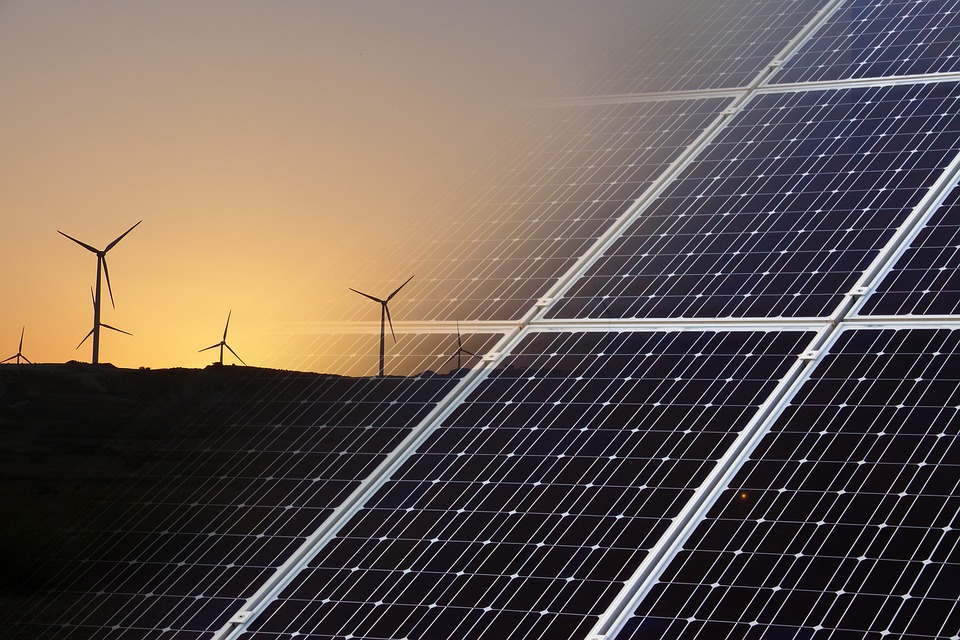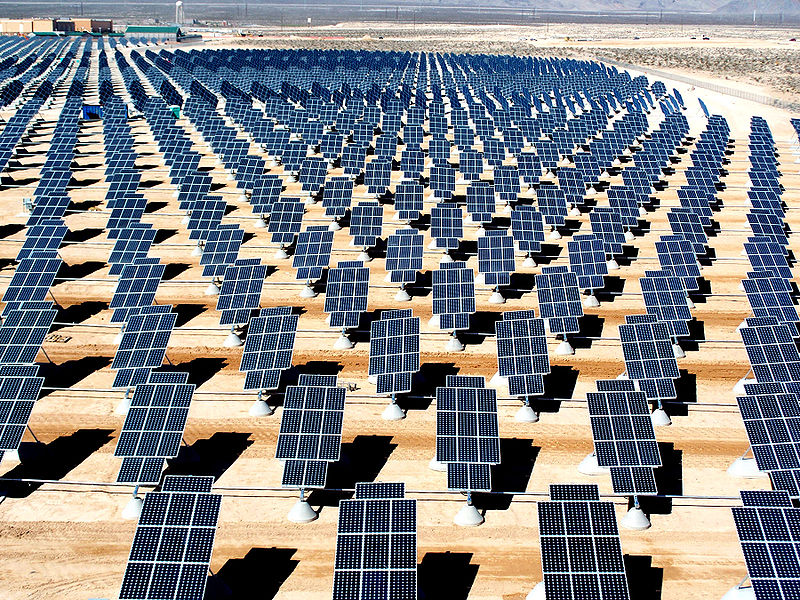
If you’ve been unfortunate enough to watch the news recently, you might think that renewable energy was in trouble. Just as the world seemed to be wising up to the dangers of climate change, the US and UK appear to have broken ranks with consensus. US Secretary of State (and former ExxonMobile CEO) Rex Tillerson isn’t convinced, while the UK has abandoned several green subsidies in a bid to decrease its national deficit.
The concerns around Trump’s America and Brexit Britain are still valid, but the arguments that sustain them are becoming less of an issue. The fact is that for all the prior scepticism and power of the fossil fuel lobby, renewable energy is starting to make good business sense. Countries who opt against its adoption and ignore the Paris Agreement are only shackling their economic potential, in what is a crucial growth area for the world’s energy and tech sectors.
Politics vs public opinion
While the scientific consensus on climate change has been established for some time, most major nations have taken longer to catch up. The United States, with its penchant for gas guzzling cars, has been a particularly stubborn holdout. The most meaningful legislative changes in favour of green technology have come under Obama’s two terms in office. As of 2015 however the U.S. is still the world’s second largest polluter, contributing almost a quarter of global CO2 emissions.
Recently though, the weight of scientific evidence and real world events has seemed to shift public opinion. While the issue remains divided on party lines, polls from Gallup and National Geographic indicate that a significant majority of Americans now believe man-made climate change is real. This could not only be vital for our planet; it also represents a new wave of potential industrial development that could rejuvenate America’s rural communities.
https://twitter.com/PeterGleick/status/839866853165948928
Yet actions taken by the new administration have clouded the Republican Party’s softening stance. Most contentious is Trump’s recent decision to roll back the Obama administration’s Clean Power Plan, citing its impact on jobs in ‘dirty energy’ and apparently negligible benefits.
The new head of the Environmental Protection Agency meanwhile has stated that he is “not convinced” by the evidence for climate change. President Trump’s early executive order to continue development of the Keystone XL pipeline, as well as his focus on the automotive industry, have also been troubling for the potential development of American cleantech.
Legislating for success
The ripples of this public policy shift are already filtering down to the states. Ohioan legislators have recently moved to make state renewable energy targets voluntary, citing the ready availability of natural gas. Contrasting evidence from two partisan research groups suggests that both approaches could provide numerous jobs and significant funds for public coffers.
America is not the only country where the tide has started to turn the other way. Questions have been raised about the UK’s commitment to environmental protection following the Brexit vote, as well as the sanctioning of a new Sino-French backed nuclear plant at Hinkley Point.
Doubts have been cast as to whether EU environmental protections will be retained, and EU regulators have heavily criticised the level of air pollution in the UK. Having reduced and then curtailed funding for onshore wind farms in 2016, the latest budget has also ended subsidies for solar deployments, raising prices in some cases by 800%.
For many people, the cost of renewable energy implementation was always worth the potential benefit to stymying global warming. But the major change in the last ten years is that green energy and cleantech have started to make financial sense. The technology underpinning solar, wind and hydropower has gotten cheaper, and numerous businesses have sprouted in the sector.
Climate of investment
Short-term policy aside, the UK is still the world’s 4th largest investor in renewables at $22.2bn, and the biggest in Europe. Many areas of the U.S. meanwhile have taken it upon themselves to carry the torch. California has set a goal of generating 100% of its energy from renewables by 2045; this is fairly momentous given its current status as the world’s sixth largest single economy.
Other states such as Kansas and Alaska have made a public play of ‘going green’; while areas like Georgetown, Texas have talked about the ‘business case’ for investing in renewable energy. The result is that 5.5% of U.S. electricity is now generated by clean energy sources. Considering that this falls below developing economies such as India, this is still not as high as it could be, but the sudden elevation of interest is a positive step.
https://twitter.com/SenJeffMerkley/status/849765781646848004
This shift plays into a global trend towards replacing old power with renewable energy sources. China is the world’s current largest polluter, but it’s also now the biggest investor in cleantech, committing almost $300bn to renewables by 2020, as well as dominating foreign investments. Indian subsidies have led to more than 16% of its energy being derived from renewables, while a spike in clean energy in Australia has correlated with a sharp drop in emissions.
The natural choice
The falling cost of generating clean energy has allowed countries with bountiful natural resources to capitalise. Switzerland has experienced a boom in hydropower, which is cited as particularly profitable for businesses, thanks to its reliability and long-term contracts. In Scotland, a focus on wind power provided more than its entire daily energy requirement for the first time in August last year.
Countries in South America meanwhile can take advantage of plentiful solar power, with Chile actually producing a surplus of energy through its solar plants. And while U.S. policy flounders, Canada is one of the continent’s leading markets, with Alberta province a particular focus for development. Even Greece, which is still laboured with debts and struggling with austerity driven cuts, has recently received $300m in renewable energy investment.
Renewables aren’t just a huge growth area for new businesses; they also represent a PR coup for existing ones. Numerous businesses are making a point of cleaning up their operations, and potentially saving money in the long-term. A deal between Jaguar-Land Rover and French energy giant EDF means 100% of the company’s energy needs will be fulfilled by renewable sources. Tech monolith Apple has taken a similar stance, ensuring that all of its Japanese manufacturing plants are green powered.
While traditional fuel sources aren’t going anywhere just yet, the momentum behind the move to renewable energy and cleantech is undeniable. For the enterprising entrepreneur, myriad opportunities exist to capitalise on this boom across almost every global market. And for existing businesses, both public opinion and financial factors make solar and industrial battery installations a tempting prospect.
Heather Landau
As the founder of Open A European Company.com and Start An American Company.com, Heather Landau has honed her skills in service advisory from the pragmatic to the practical. With a total of 25 years combined experience in international marketing and business development, Heather is a leading voice on company formation in Europe, and operates similar services across the rest of the world.






Leave a Comment